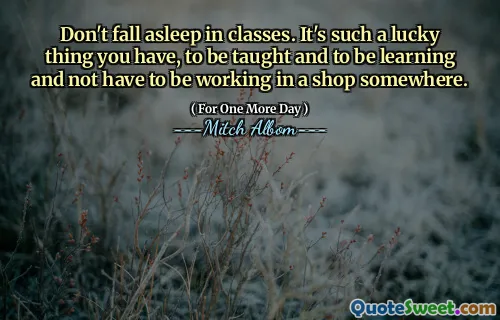
I just hope I can get another personal best. If I can do that, I'll be satisfied.
This quote reflects a mindset centered around personal growth, perseverance, and the continual pursuit of self-improvement. The speaker emphasizes the importance of setting personal goals, specifically achieving a new personal best, which signifies surpassing one's previous achievements through dedication and effort. This attitude resonates deeply with the idea that success isn't solely defined by external recognition or comparison with others but by individual milestones and progress. The desire to reach a personal best implies resilience—facing challenges head-on and pushing limits despite obstacles and setbacks.
Furthermore, the statement reveals a sense of humility and satisfaction that stems from striving toward personal excellence rather than obsessing over external validation. It suggests that happiness and fulfillment are found in the journey toward self-improvement, not just the end results. This outlook can be incredibly motivating, inspiring individuals to focus more on their own development rather than comparing themselves to others.
In a broader context, it also highlights the importance of setting achievable yet ambitious goals, celebrating small victories along the way, and maintaining a growth mindset. It encourages us to define success on our own terms and to cultivate patience and persistence. Achieving a personal best may require consistent effort, overcoming fears of failure, and resilience in the face of setbacks. Ultimately, fulfilling these personal aspirations contributes significantly to a sense of purpose and well-being, reminding us that progress—no matter how small—is valuable.
This quote, therefore, encapsulates a powerful philosophy: happiness comes from striving forward and appreciating the effort, not just the outcome. It encourages us to focus on the continuous pursuit of our best selves and to find satisfaction in our own progress.











